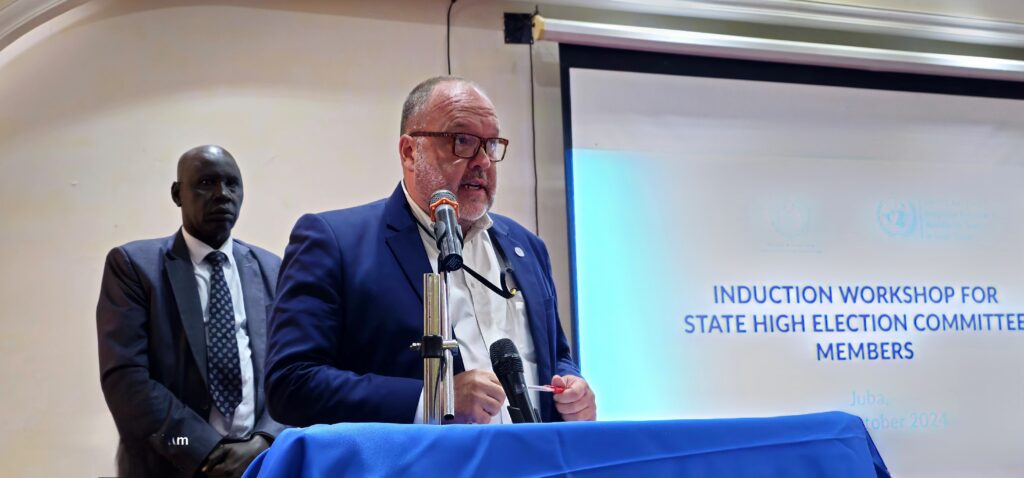The UN and the National Election Commission (NEC) launched an intensive preparation for South Sudan’s first election in Juba on Tuesday.
Originally slated for December 2024, the elections have now been postponed to 2026 due to various constitutional and logistical challenges.
NEC, in collaboration with the UN Integrated Electoral Assistance Team (IEAT), held a workshop aimed at instilling foundational principles of effective electoral management.
The workshop focused on clarifying the roles and responsibilities of NEC to ensure credible and inclusive elections that reflect the will of the people.
The head of IEAT, Darren Nance, emphasized the importance of local involvement in the electoral process.
“I want to start by stressing how happy I know I am—and I know the Chairman and the Commission are—that you all are here,” he stated.
“It will not be these my people administering the elections. It will be you and your teams across the country that will have to implement the decisions of the NEC in accordance with the law.”
Nance urged the participants to engage with the public, the civil society, and the political parties.
“Your role is critical to the process,” he added.
“It is ultimately you and the actions, decisions, and engagements you have at the local levels that will determine if the process is seen as credible, transparent, and inclusive.”
Nance outlined the difficulties that election management bodies faced globally, particularly in the context of misinformation and disinformation that could undermine public trust.
He highlighted the importance of civic education in fostering understanding and engagement among voters, stating: “It is not possible to go into voter information and voter education until key decisions are made, but there is time now to talk about civic education.”
The Chairperson of NEC, Prof Abednego Akok, emphasized the need for thorough preparation during this extension.
“You are here to acquire knowledge, to do our task efficiently and effectively,” he said.
“Our biggest problem in South Sudan is that many of us don’t read. I urge you to pay attention, to acquire that knowledge. We want you to conduct fair, free, and credible elections.”
Akok recounted past challenges, saying: “In 2015, I was summoned by the Speaker of the Assembly to explain how I declared the election date.
“The law mandates that the election commission must declare the election date six months prior, but the commission refused. I don’t want you to find yourselves in similar situations.”
The workshop serves as a crucial platform for discussing the election offices and the timeline for voter registration.
Nance reiterated the urgency of addressing the unresolved issues, including the legal, the political, and the logistical challenges.
“While two years may sound like a long time, the reality is that it is a short amount of time,” he warned.




